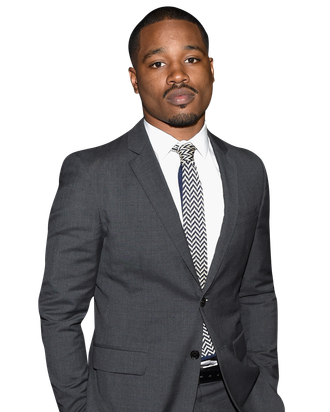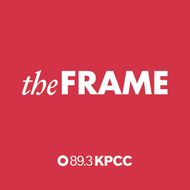
With Creed now in theaters, Rocky fans can finally see how helmer Ryan Coogler, the brain also behind 2013’s acclaimed Fruitvale Station, and star Michael B. Jordan, who plays Stallone’s fervent protégé, have shaken up the big-screen boxer’s legacy. To shed light on the much-hyped film, our friend John Horn, host of the KPCC radio show and podcast “The Frame,” interviewed Coogler about the shift in direction with the Rocky spinoff, the challenges of pitching the Creed concept to Sylvester Stallone, and his commitment to diversifying today’s cinematic landscape.

You inherit a lot of history with these movies. How much is it an advantage versus a liability?
Every advantage is kind of a liability, right? We wanted to navigate that as best we could. We’ve got the old characters, but we’re following a new one. The best advantage is we have a different perspective on all the things we had before — the perspective of Adonis.
Adonis Johnson is played by Michael B. Jordan, who was your star in Fruitvale Station. But I understand your interest in Rocky goes back. Did you grow up watching these movies?
Yes, I did. My father was a Rocky fan. He would watch them as bonding time with me and my brother. We watched the movies constantly and grew to love them through my father.
How long ago did the idea for Creed start to take shape?
It was around 2011–2012 that I went to film school. I was getting ready to make Fruitvale. Then my father got really sick, and my world kind of crashed. He had a neuromuscular condition, so he was becoming weaker. In the process, he was struggling mentally. I got this idea about telling a story about it. I thought, What if this happened to my father’s hero, to Rocky? That’s kind of when I came up with the idea of Adonis, and the idea of the movie.
What was it about Rocky that was so meaningful to your dad?
My dad always kind of saw himself as an underdog. But I later found out it was really about him and his mom. She was diagnosed with breast cancer when he was 8 or 9, but she fought the disease for 15 years. My father saw her as an underdog fighting like Rocky. In the last few months of her life, they would kill the time by watching TV. Rocky II was on television all the time. That’s what made the movie so special to him.
You’re talking about father-son stories, which are very personal. But with Sylvester Stallone, you’re dealing with a guy who’s very strong. So approaching him with, “By the way, Mr. Stallone, you’re going to start losing it in this movie” must have been an awkward conversation to have.
It was. But the thing about Sly is, he’s an artist, an actor. He’s nothing like the characters he became famous for. The only thing he has in common with them is his physicality. But he’s an intellectual — very articulate. He was definitely apprehensive about the idea of people seeing Rocky like this — and the idea of aging and vulnerability — but at the same time, he was excited about a challenge.
How did you convince him?
It took a lot of time and people. The legacy of his franchise was so close to him, and the Rocky films have always been inspired by personal situations for him. So handing over the franchise, and bringing the character out of the ashes — which was where he was comfortable leaving him at the end of Rocky Balboa — was the biggest thing to get past.
Did Fruitvale help seal the deal?
Absolutely. When you’re a filmmaker, or any kind of artist or craftsman, it helps to have work. The first time I pitched Sly, I hadn’t made a feature film yet. And Sly has such a long résumé — I was lucky he even heard me out.
Was that idea you pitched him initially the thing you co-wrote with Aaron Covington, the idea about the son and Rocky getting a little older?
When I pitched Sly, Aaron wasn’t on just yet. Once we got the script green-lit, that’s when I tapped Aaron to knock out the screenplay with me. We’re close. We went to film school together, we lived together my last year … He’s somebody I trusted, and a great writer.
If the first Rocky were made today, it could have played at Sundance. It was made like an independent film. I’m wondering if that mentality informed how you wanted to shoot Creed. Not too fancy, a little gritty and indie-looking.
I think you’re absolutely right. Rocky was a United Artists movie. The producers were running around without permits. They were hiring people with weird technology, which ended up becoming the Steadicam. It was like a rebel style of filmmaking. Later on, the films took on the perspective of their era — in the ’80s, they were a little more grand. These days, filmmaking is a lot more grounded. It’s closer to how it was back in the ’70s. For instance, even in a big-budget film like The Hunger Games, you’ll see that intimate, handheld camera work, to make it almost documentary-style. It’s become the language of cinema in 2015, where we see so much shot on iPhones — that style tends to be more acceptable.
I want to talk about the style of this movie. You’ve made two features, each shot by women. Rachel Morrison shot Fruitvale and Maryse Alberti shot Creed, which is a very male story — it’s about guys beating the hell out of each other in the gym. Gender clearly isn’t an issue for you when you look for your cinematographers.
No, it’s not an issue for me looking at anything. What’s funny is Rachel was going to shoot Creed, but then she got pregnant — by the time we got green-lit, she was like four to five months along. Then I wound up meeting Maryse. She had such a great filmography in the documentary space as well. She and I really hit it off. For me, gender doesn’t matter anywhere. It matters to me that our crew is as diverse as it could be. Creed is about male fighters, and masculinity is a theme in the movie. But to me it was important to have the perspective of women. We have great women characters in the film — with these boxers, you see that the women in their lives are the ones kind of shepherding them. Maryse did a kickass job.
Talking about the diversity of their crew — your movie is coming out a year after #OscarsSoWhite. It was a big deal. None of the actors nominated last year were people of color. But this year, your film, and another big one, Straight Outta Compton, were movies that were made by directors of color with lead actors of color. Are you conscious of that?
I try to look at stuff from a personal perspective. As a kid who was very much into pop culture, I definitely would notice when there weren’t a lot of characters that didn’t look like me. I would get frustrated watching a show that’s supposed to represent a large swath of America — a generic high school, or a big city — I would feel that the levels of representation were inaccurate. It was a big reason why I got into filmmaking. I wanted to tell movies that came from the perspective of characters that I wanted to follow, that I wanted to watch. I hope we see a shift where we see stories from a more diverse perspective. That when we watch movies, it looks like the world we live in.
Do you think that’s not only an opportunity, but also a responsibility? Because the white studio executives aren’t doing it.
As an artist, your greatest responsibility is to yourself. If the work you’re doing doesn’t mean something to you, it’s not going to be good work. That being said, absolutely. It always make sense to have an understanding from a social context.
In Rocky, Stallone famously runs up those steps in Philadelphia. This is a slight spoiler, but in Creed he … doesn’t quite run up them. In fact, he says something along the lines of, “I think they added some more of these.” When you’re talking to Stallone about a scene like that, is he game?
Sly is game for anything. It just has to make sense to him.

